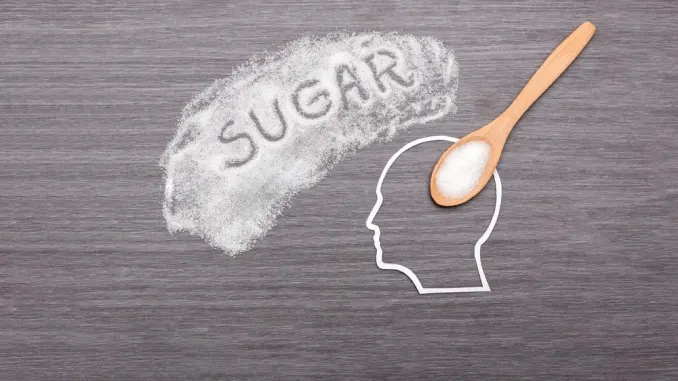
"Recent studies conclude that high glucose levels from sugar impacts your memory and impair cognition. In fact, individuals with diabetes, a condition that causes elevated high blood-sugar levels, are known to increase stress and have a higher risk of developing Alzheimer's disease, a form of dementia. It seems that the brain in type II diabetes, just like the body, has difficulty utilizing sugar for energy and this can lead to slower processing when it comes to memory retrieval."
"High blood sugar also contributes to damage in the brain through hardening of the arteries, thereby leading to decreased blood flow to key areas of the brain. So, is sugar all bad? Of course not, but glucose levels must remain in a tightly regulated window to prevent damage. What is Glucose? Glucose is the primary metabolic fuel in the body. It is formed when carbohydrates are broken down in the body."
High blood glucose impairs memory and cognition and is associated with increased stress and higher risk of Alzheimer’s disease. Type II diabetes leads to impaired brain glucose utilization, causing slower memory retrieval. Chronic hyperglycemia contributes to vascular damage and arterial hardening, reducing cerebral blood flow to critical brain regions. Glucose is the primary metabolic fuel produced from carbohydrate breakdown, and insulin transports glucose into cells for energy. Blood sugar imbalance can cause hypoglycemia or hyperglycemia and may progress to diabetes if levels remain elevated. Blood glucose is measured fasting or postprandially; fasting measurements are commonly used clinically.
Read at Natural Health News
Unable to calculate read time
Collection
[
|
...
]